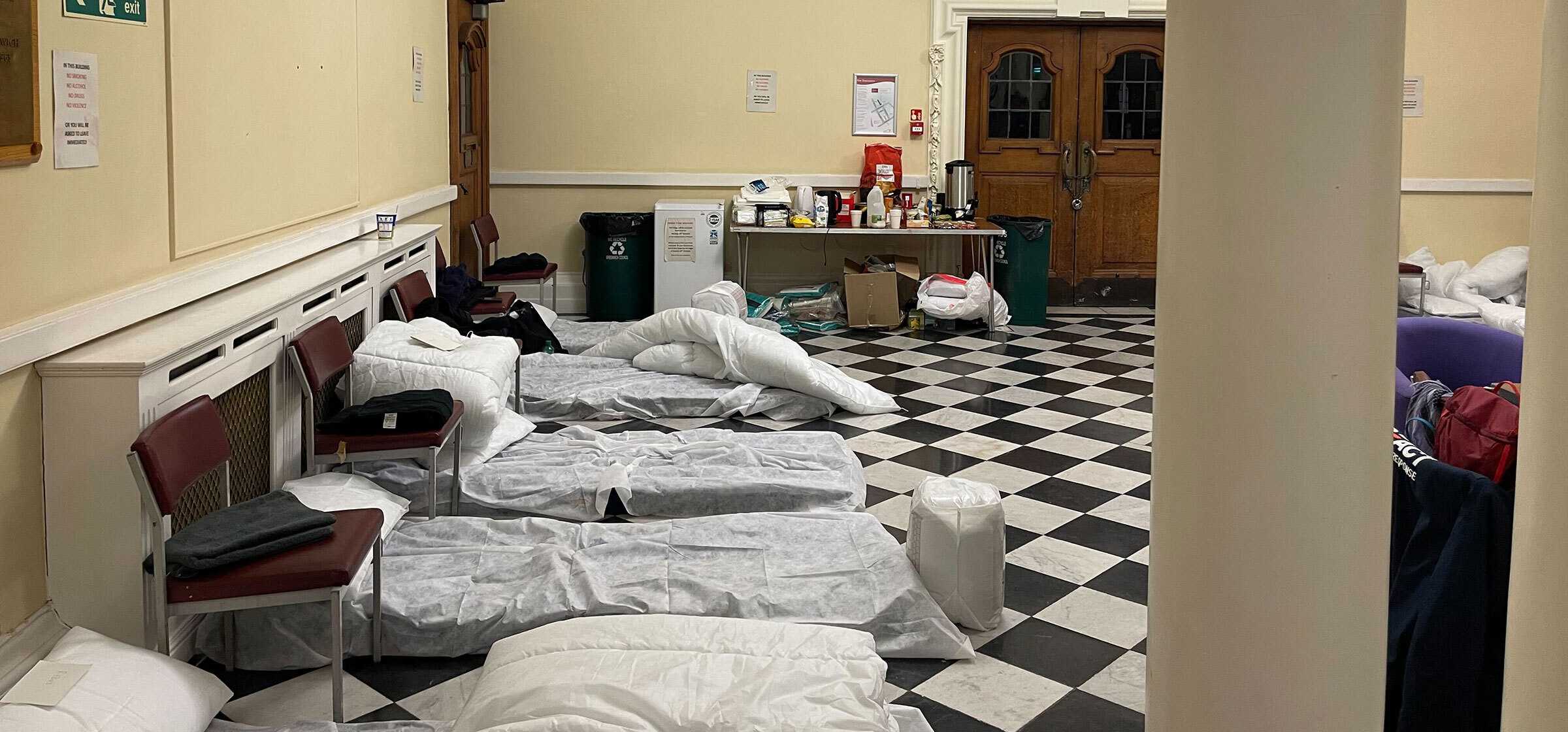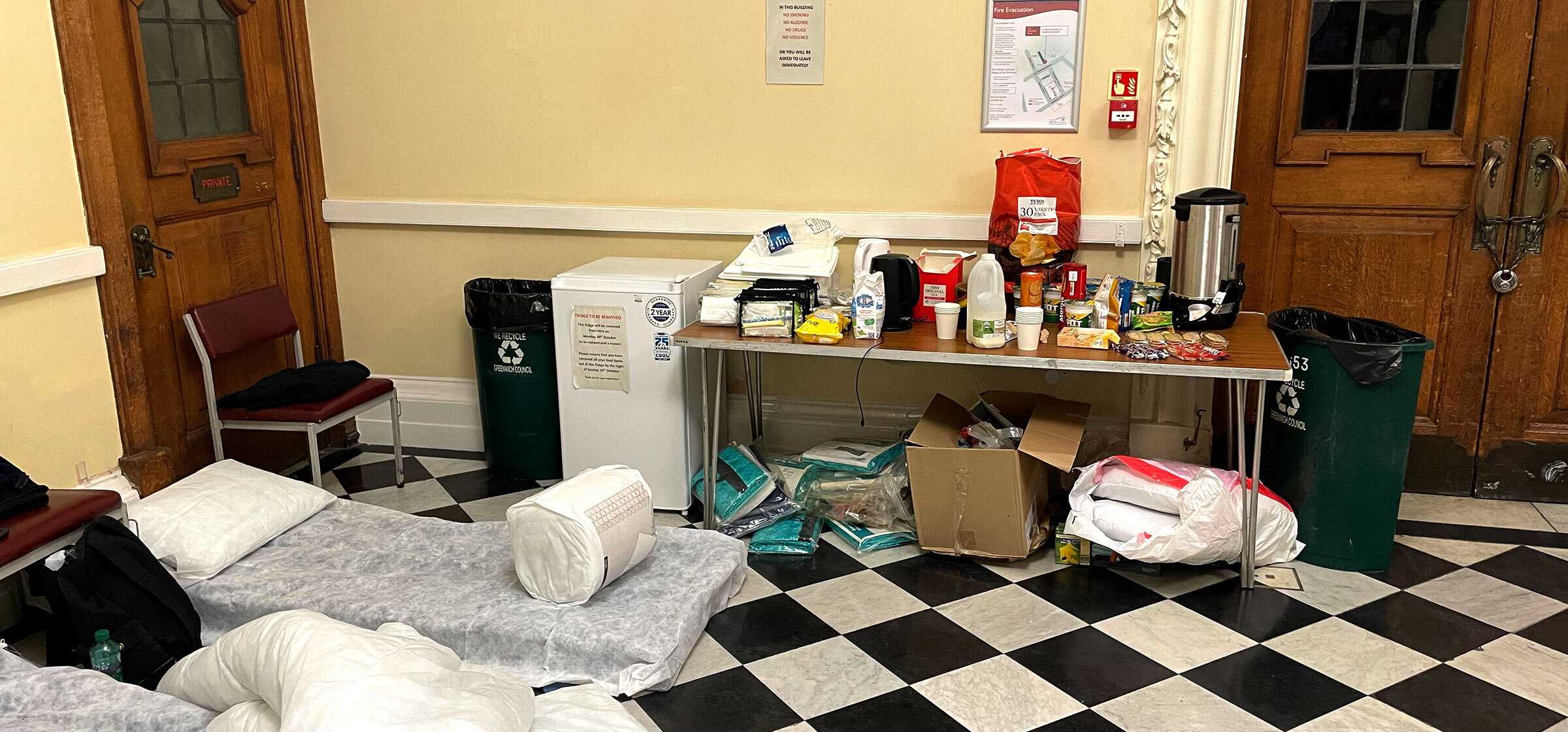Severe Weather Emergency Protocol (SWEP): REACT's Vital Role in Supporting London's Rough Sleepers

Posted by Laura Butlin 12th December 2023 News
Estimated Reading Time: 2 mins
In the biting cold of winter, the harsh reality of life on the streets becomes even more perilous for those without shelter. Recognising this critical need, the Greater London Authority (GLA) has guided London's councils on the Severe Weather Emergency Protocol (SWEP) since the winter of 2017-18. The protocol serves as an emergency humanitarian response to severe weather conditions, primarily to preserve life.
A consistent trigger point for pan-London SWEP activation has been established at 0°C on any given night. This uniformity ensures that all 33 London councils respond in tandem to the needs of the city's rough sleepers. While each borough is responsible for its local SWEP provisions, the GLA also funds ‘overflow provision’ for cases where local capacity is exceeded.
The recent escalation in rough sleepers, particularly over the past six months, has required increased support. The GLA has approached REACT Disaster Response to provide this additional capacity during SWEP activations. This collaboration underscores REACT's commitment to humanitarian aid and agility in responding to emergent needs.
On the 29th of November 2023, SWEP was activated across London, a status expected to continue until the 6th of December. REACT received specific requests from the Hammersmith and Fulham Local Authority (LBHF) and Greenwich Local Authority in response. Our response was immediate and effective.
Seven dedicated REACT responders volunteered 34 hours, working tirelessly through the night in shifts between 8 PM and 8 AM. They were stationed at two critical locations: The Woolwich Town Hall in Greenwich and The Holy Trinity Church in Hounslow. These volunteers were pivotal in ensuring the smooth operation of emergency SWEP centres set up by the local authorities.

REACT volunteers provided invaluable practical support at these centres, such as setting up beds and distributing food. More importantly, they offered emotional support, engaged in conversations, helped rough sleepers settle in, and provided warm tea, coffee, and a compassionate listening ear. This blend of practical and emotional support highlighted the comprehensive nature of REACT’s response to humanitarian crises.

The impact of REACT’s involvement was significant, as echoed in the words of Christina Dalton, Emergency Response Operations Manager from the British Red Cross (BRC), in her correspondence with Vicci Fabris, REACT’s Regional Lead for London and SE. Dalton expressed profound gratitude for the swift mobilisation, effective communication, and commendable efforts of REACT volunteers. The feedback from Greenwich was particularly noteworthy, where the local authority acknowledged that without the support from BRC and REACT, they would not have been able to open their shelter.
This partnership between REACT, BRC, and the local authorities exemplifies a successful collaborative effort in addressing a pressing humanitarian need. The ability of REACT volunteers to rapidly respond and provide critical support underlines the organisation's commitment to its humanitarian mission. As cold nights persist, REACT remains vigilant and ready to extend its support, reinforcing the safety net for London's most vulnerable residents during severe weather emergencies.
